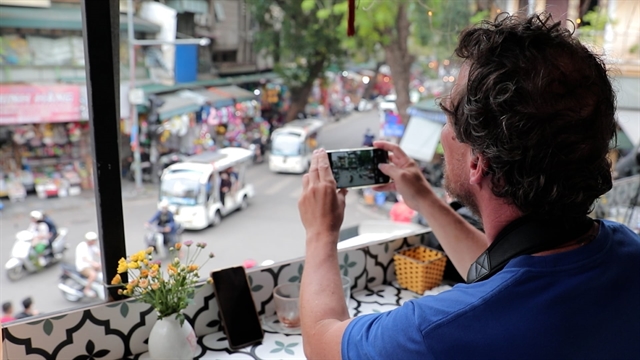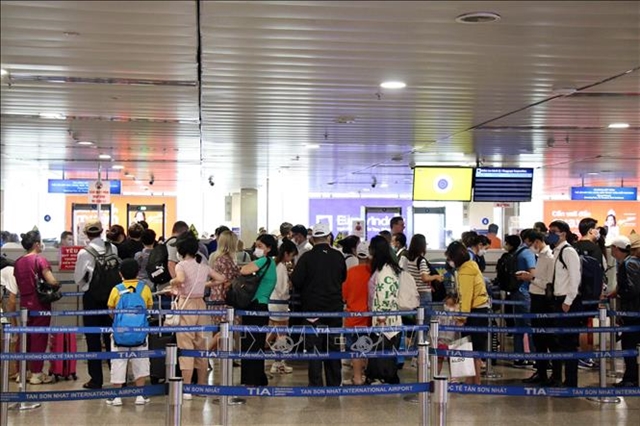.jpg) Society
Society

The northern province of Thái Bình and Mekong Delta province of Cà Mau were the two first localities to let students return to schools on Monday after an extended closure due to COVID-19.
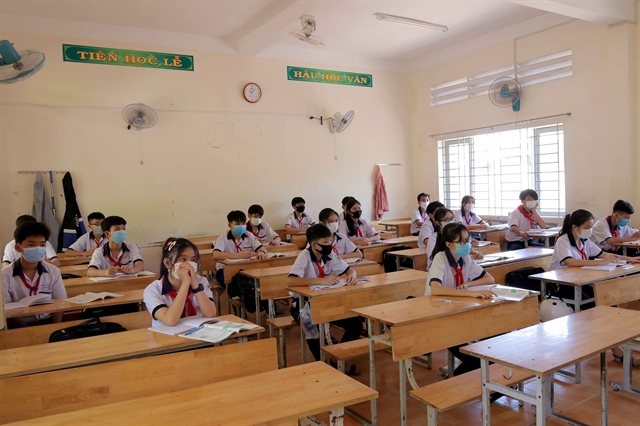
|
| Ninth graders of Võ Thị Sáu Secondary School in Cà Mau City are scattered to maintain a safe distance. — VNA/VNS Photo Kim Há |
THÁI BÌNH — The northern province of Thái Bình and Mekong Delta province of Cà Mau were the two first localities in Việt Nam to let students return to schools on Monday after an extended closure due to COVID-19.
Ninth to twelfth graders in Thái Bình Province will only spend half a day at schools as opposed to the usual full-time schedule. The provincial Department of Education and Training also asked high schools to arrange for grade 11 and 12 to study in the morning and grade 10 in the afternoon.
In Cà Mau Province, schools were requested to split classes into smaller groups and implement measures to maintain a safe distance of two metres between parents when waiting to pick up their children.
Thanh Hoá Province People’s Committee on Monday released an urgent notice to allow secondary and high school students to come back to school on Tuesday.
In Vĩnh Long Province, ninth to twelfth graders will return to schools from April 27.
Other localities in the low-risk group of infections also have plans to re-open secondary and high schools by the end of April or early May. Primary schools and kindergartens are expected to receive students one or two weeks later.
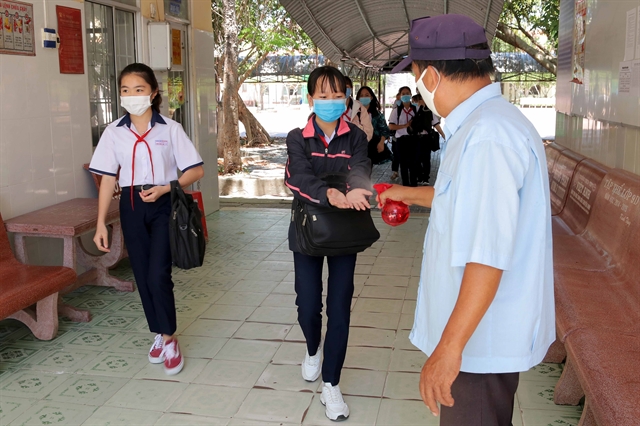
|
| Students of Cà Mau City's Võ Thị Sáu Secondary School are provided with antiseptic hand wash. — VNA/VNS Photo Kim Há |
Nguyễn Hữu Độ, deputy minister of education and training, said 35 low-risk provinces and cities across the country should consider when to re-admit students as well as put the safety of students and teachers first.
Final year students including ninth and twelfth graders should be prioritised to return to school, he said, adding students did not need to be on campus the whole week. Timetables can be re-scheduled to make sure students spend at least three days at school.
The deputy minister said each class could be divided in half while online and on-campus teaching could be combined to ensure knowledge is delivered for students.
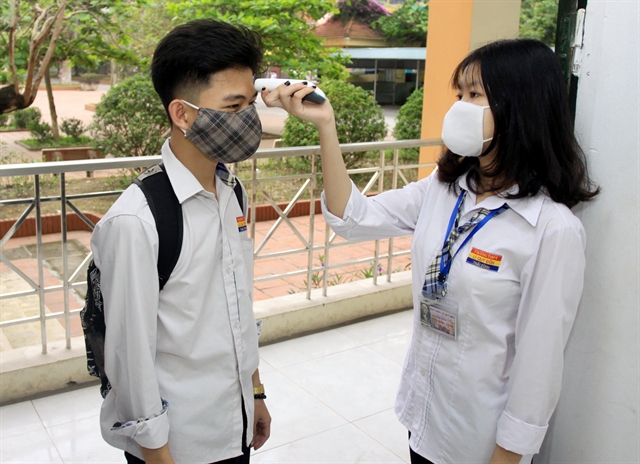
|
| A student of Lê Quý Đôn High School in Thái Bình City has his temperature checked before entering the classroom. — VNA/VNS Photo Thế Duyệt |
Độ asked schools to strictly follow instructions of the Ministry of Education and Training and Ministry of Health on practicing good hygiene.
Schools are asked to sterilise campuses, provide soap and antiseptic hand wash for students, leave windows open and minimise the use of air conditioners.
Teachers bear the responsibility to monitor students’ health conditions and remind them to adopt self-protective measures.
All mass gatherings including fieldtrips or extra classes are currently prohibited until further notice.
The country's two largest cities, Hà Nội and HCM City, belong to the category of elevated risks and school closure would continue to be in effect until further notice. — VNS



.jpg)
.jpg)
